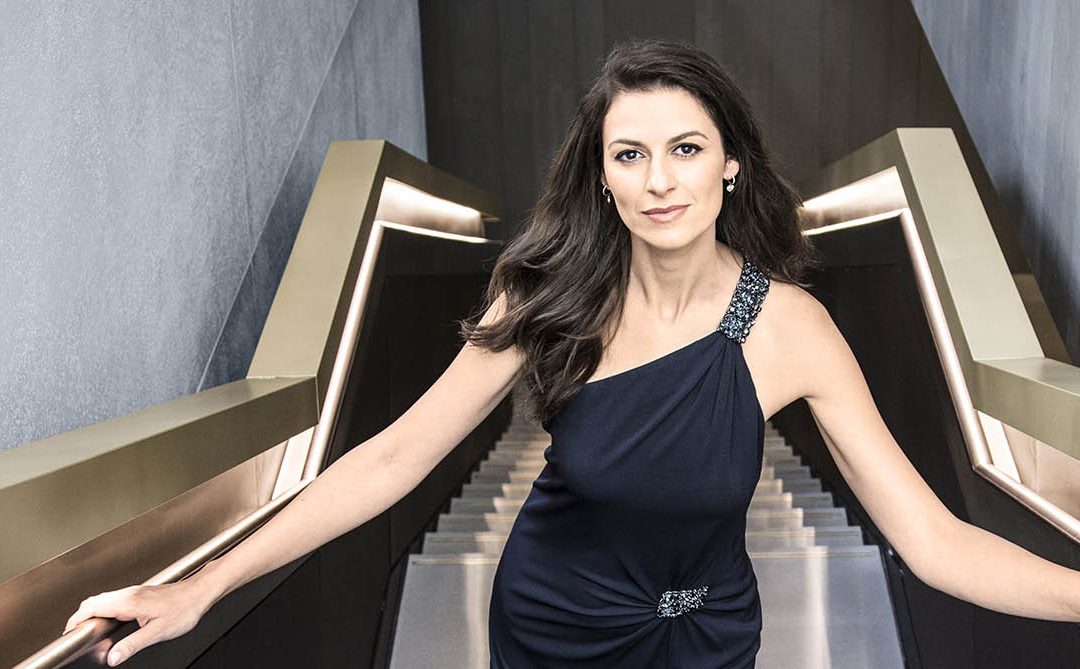
Photo: Paul Marc Mitchell
The first time I saw Chen Reiss was as Zerlina in Don Giovanni at the Royal Opera House Covent Garden in 2018. Some readers know how fascinated I am by this opera; I’ve seen and heard it so many ways, by so many different people. But Reiss’s performance was something entirely apart; she was a million miles away from the numerous other presentations I’d experienced, vocally, dramatically, even, dare I say, spiritually.
Over the following weeks following that performance (one which marked her ROH debut), I absorbed everything I could, finding myself moved, inspired, and delighted by her work in everything from sacred to classical to operetta. Based in Vienna, the Israeli soprano has a wide range and deep appreciation of the role process plays in career. She’s performed with the Bayerische Staatsoper, Théâtre des Champs-Élysées, Teatro alla Scala, Semperoper Dresden, Deutsche Oper Berlin, Hamburg State Opera, and De Nederlandse Opera Amsterdam (to name a few), and made concert appearances with the Vienna Philharmonic, Staatskapelle Berlin, Gewandhausorchester Leipzig, Tonhalle Düsseldorf, Laeiszhalle Hamburg, Mozarteum Orchestra Salzburg, and Orchestre de Paris, Orchestre National de France, plus enjoyed appearances with an assortment of summer events including the London Proms, the Lucerne Festival, Schleswig Holstein, and the Enescu Festival. In 2014 she sang at the Vatican for the Pope (and a rather large worldwide audience) as part of a televised Christmas Mass,and her discography reveals a wide and adventurous musical curiosity.
Reiss has performed a myriad of roles with Wiener Staatsoper (Vienna State Opera) over the past eight years, with an ever-expanding repertoire, notably the music of Richard Strauss; as you will hear, the German composer’s work matches her lusciously gleaming tone just beautifully. March 21st (2019) sees Wiener Staatsoper celebrating its 1,000th performance of his 1911 opera Die Rosenkavalier, with Reiss performing the pivotal role of Sophie in a much-loved Otto Schenk production led by conductor Adam Fischer. She’ll also be singing the role of Marzelline in Beethoven’s only opera, Fidelio, again under the baton of Fischer. From Vienna, she goes on to perform concert dates in Belgium, Austria, and Germany, and in the summer months tours Spain (plus a date in Munich) with conductor Gustavo Dudamel and the Munich Philharmonic Orchestra.
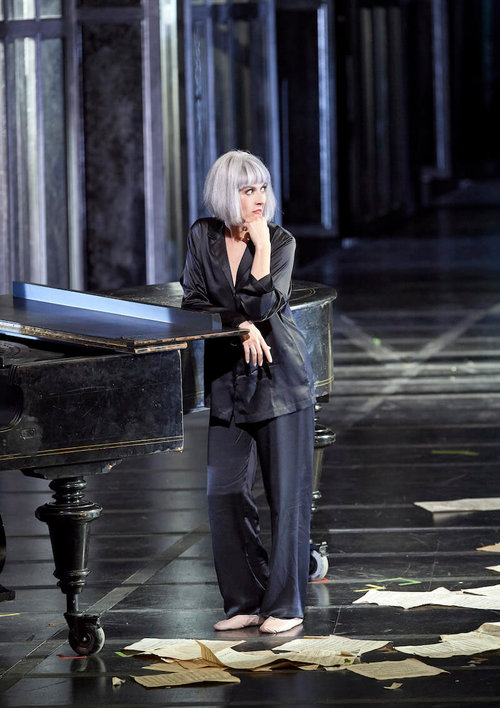
As Ännchen in Weber’s Der Freischütz. (Photo: Wiener Staatsoper / Michael Pöhn)
Reiss and I first spoke last year when I was writing a story about the relationship between Instagram and opera. This time we chatted during the short break she had between gigs at her home base in Vienna, just after she’d put her two young daughters to bed. What’s so refreshing about Reiss is her authenticity; she is simply herself, whether onstage or off, with no predilections toward haughtiness, self-dramatizing, or cutesy artificiality. That doesn’t mean she isn’t aware of showmanship for the stage, however; witness her sparky Ännchen in Weber’s Die Freischütz, which oozes equal parts sass and smarts but escapes the cliched confines of both by embracing an essential humanity can sometimes go missing on the opera stage. Vocally Reiss exudes control, range, and innate lyricism, and theatrically she is a force of authentic expressivity. When harmoniously combined with easy elegance and graceful poise, a beguiling and very human artist emerges. As Reiss notes, that artistry is a work-in-progress, as it should be; she is fiercely dedicated to honing her craft. Committed to exercising her craft on the stage and in the concert hall, Reiss is also enthusiastic about passing down what she knows to the next generation, and keeping herself busy and inspired with projects, one of which involves embracing the vocal writing of a composer who is not entirely beloved by singers. A special jewel in the music world, she’s one of the most down-to-earth artists I’ve ever spoken with. Fingers crossed to see her live in 2019.
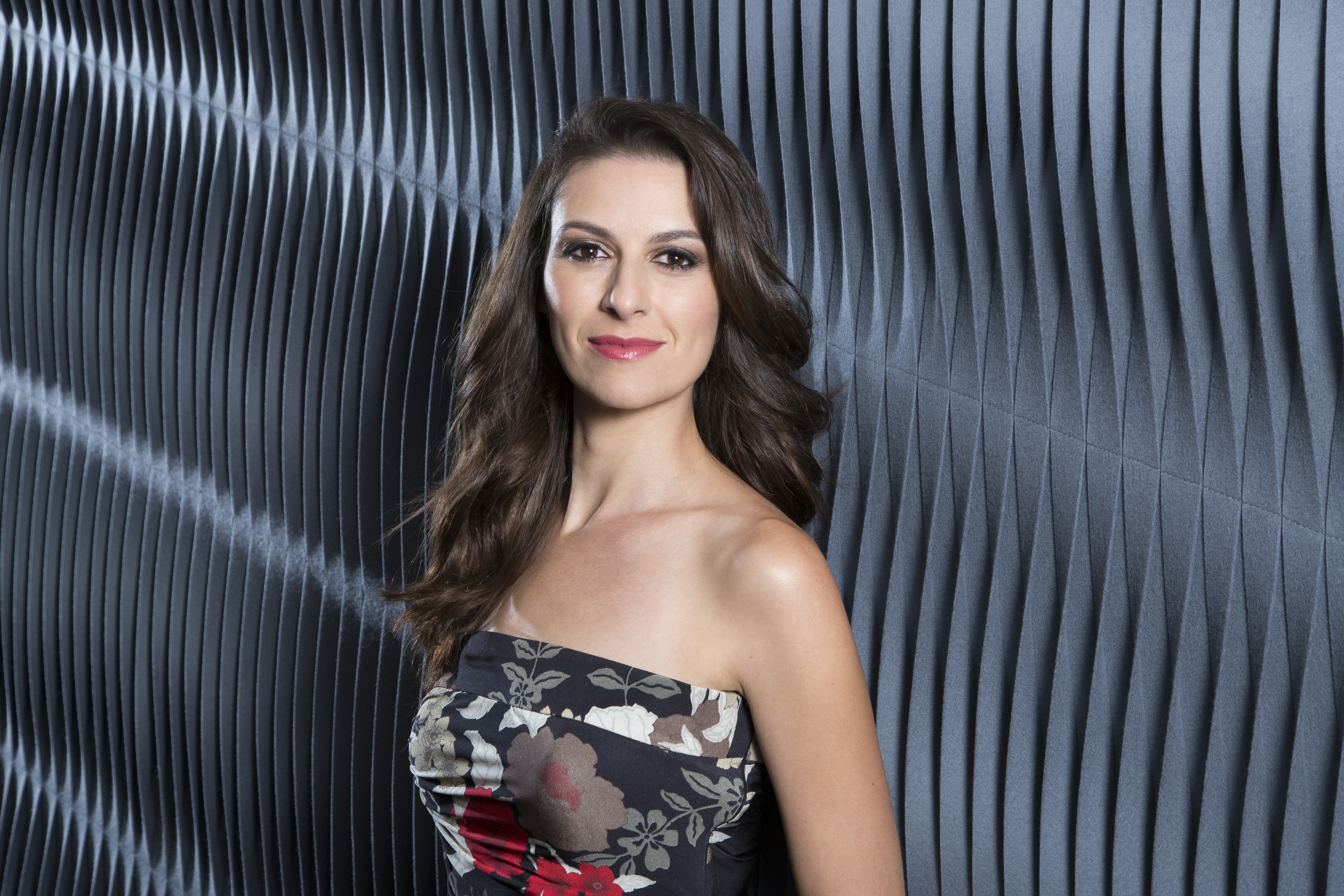
Photo: Paul Marc Mitchell
How have you enjoyed your time off ?
It’s been great — I’ve been focusing on my own projects, and I got so much writing done. So many ideas come to your head when you’re not just doing, when you take time off… but you’re a writer, you know that!
It’s true: if you don’t give yourself that breathing space as an artist, you are running on fumes. You have to shut the door on everything…
… including the phone! That’s the most difficult thing. It’s amazing how much noise there is in the background, whether it’s WhatsApp or Instagram or Facebook or email.
And you’re a busy singer, so you have to be easily reachable.
The fall was busy – there were a lot of new roles and traveling, and it was really one thing after another, but it’s good. I’ve been in Vienna the past two months now, singing and rehearsing and also learning new roles, but being in one place is so much better than going around all the time.
All that travel is exhausting.
But you travel a lot too!
I did in the summer and autumn, yes. Ultimately I want to be in Europe permanently — it’s important to be able to hop on an airplane or a train and see people like you in places like Liège.
I’ve never been to Liège — I’m looking forward to it! I’ve sung very little in Belgium. The last time I sang there I was really young; it’s been a long time! I sing quite a lot in Amsterdam. And of course I’ll be in Germany in June.
Chorin has a long history of vocal performances. It’s a good spot for vocal music with the way it’s designed, visually and acoustically.
I’m looking forward! And The Seasons is one of my favorite pieces. For me Haydn is one of the underestimated vocal composers; he wrote some incredible things. The Seasons is not done often but it’s a masterpiece, it’s so brilliant. I read that Haydn wrote The Creation for the angels and The Seasons for the people, and it’s true — it’s so down to earth and so moving, and it really should be done much more often.
What’s it like going between the works of Haydn and Strauss and Beethoven? How do you navigate those changes vocally and otherwise?
I started more in Haydn, Mozart, Handel, then the voice grew into the heavier stuff like Strauss and Humperdink; I consider Gretel really something I sing with my full voice, and Zdenka (from Strauss’s Arabella), where I feel I need my entire vocal power to do it. And actually, speaking about Beethoven, he’s a composer that I got into fairly late. I started when I was fourteen, with Baroque and Mozart, that music always felt very natural in the voice. I had very easy coloraturas, not just the high but in the middle voice. The runs were always easy for me when my voice was very light in my early twenties. What I had to learn is to sing the long lines, and to use more of the voice. It’s a very big orchestra here in Vienna, and they’re sitting high up in the pit, so the volume is tremendous. Singing in Vienna taught me how to lean more into the body.
I still take voice lessons regularly. And when young singers write me, I always say: find a good teacher, and practise good habits. Once you find a teacher you trust, you really need to continue taking lessons. Athletes have their coach and they train with that coach, even those who win the World Cup — they still go for regular check-ups on their technique, and we have to do it as well. I think I am careful too; I was offered, years ago, roles that were heavier and required more middle voice and I didn’t do them. I really stayed within my fach. Of course it’s also important to be versatile; I don’t just sing opera — luckily I sing a lot of concert music too, which really keeps the voice in very good shape, because you can concentrate on staying in the body, on the music, on the vocal lines.
That’s the thing about performing concert repertoire: you aren’t necessarily worrying about blocking.
But in concert you can also be too static. Opera has the movement that releases you. So every discipline has its advantages and disadvantages.
I watched the Master Class you did through the Israel Philharmonic last year. What does teaching give you as an artist?
You learn a lot from the students! First of all, you learn how to listen. And, I think that there are certain, I don’t like the word “rules,” but guidelines that I strongly believe in. For instance, I believe 80% of the work sits in the breath. If you hear something which is maybe a sound that is not, I don’t like to say “ideal” but maybe not the ultimate sound, you can hear the singer can do better, then I think mostly there is some kind of blockage in either the posture, or the flow of air. That’s really almost always the case, and I know for me, it’s either the jaw or the tongue or solar plexus or lower back, so you just have to see where it is, or to give yourself the order to let go. And it’s really hard.
And frightening, I would imagine.
I find it’s much easier to do on your own than when you’re in front of other people. To me, singing in a way is a high level of meditation, in front of thousands of people.
That’s a good way of putting it!
Ha, yes! It’s easy to say and hard to do. It requires immense focus. It’s a balance. You also have to be very energized, and to find the balance.

With Mariusz Kwiecien in the Royal Opera House production of Don Giovanni by Kasper Holten, 2018. (Photo: Royal Opera House / Bill Cooper)
“Poise” is the precise word that came to mind when I saw your Zerlina in the Royal Opera House production of Don Giovanni last year. It was so much more than the soubrette, which is an unfortunate norm with regards to performances of that role. I had to rethink parts of an opera I assumed I knew very well.
I don’t like the categories they put us in: “soubrette,” “dramatic soprano” and so on. This isn’t what the composer meant. You have to be true to the character. You have to be in the moment in every sense, because the breath is really… in Hebrew there is only one letter difference between the word for “breath” and the word for “soul,” and that letter is the word for God. So the difference between breath and soul is God, or the way I interpret it is, the breath carries the soul, and to me, this is singing. But this is the philosophical explanation — it takes years of physical training. We are using our bodies; our body is our instrument. You can have great ideas in your head but if you don’t practise and develop muscle memory, a very exact muscle memory, then you not will be able to execute it onstage, because there’s so much going on, especially in opera.
… and in the rehearsals leading up to the actual presentation, too.
I love working with directors. If it’s a good director, they push your limits, to places you didn’t think you could go, to places you didn’t think you’d have the courage to go, and it’s amazing what comes out of it. I love rehearsing. It’s not just about the final product, it’s about trying new things, which is why, to me, it’s much more interesting to create something, a whole role, than to do a competition. I never found competitions very enjoyable in the sense of, I didn’t feel like I made a journey, like the character developed. I never felt that I achieved any musical or dramatic development.
As a pianist I was forced into competitions kicking and screaming. The entire process felt reductive — of music, of me as an individual player, and as a thinking, feeling person.
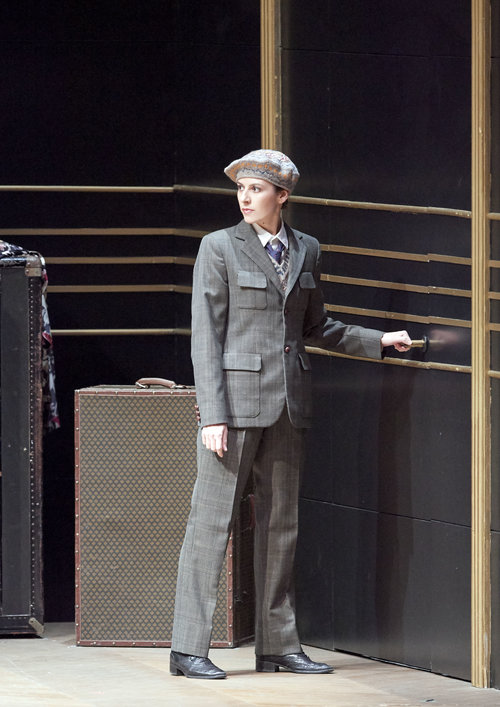
As Zdenka in Strauss’s Arabella (Photo: Wiener Staatsoper / Michael Pöhn)
Yes! It’s not my character to compete. The reason I sing is not to be better than anybody else, and also not to prove myself to anybody. It’s because I love creating in the moment, and I never felt a competition was a creative environment. When you work on a production you’re in a creative environment, and you have time to develop things, and you learn things about yourself. And sometimes it goes great, and sometimes not, it depends on who your partners are, which is why it’s important to combine opera with other artforms, and important for me to do my own projects. It’s more interesting to me to create things like my Beethoven CD, from the beginning. I feel like I have much more control and artistic freedom.
You’re doing a Beethoven album?
I’m really gotten into his music. As I said, I discovered it quite late — late in the sense of, even after Strauss! I sang a lot of Strauss before I sang Beethoven! The first one I sang was Christus am Ölberge (Christ on the Mount of Olives), which is a fantastic aria for soprano, one of the best, and after I sang it I asked myself, why am I not singing more Beethoven? Everybody kept telling me, “He didn’t know how to write for voice! He’s difficult for singing!” I don’t understand why people think that. I really don’t think it’s the case.
That’s a common feeling among singers toward Beethoven’s music: it isn’t vocally friendly.
What made me say “I have to do a CD of Beethoven!” is that I got to sing Fidelio. The first one I did was in concert with Mehta in Israel, which was fantastic, then I had the big privilege to sing it in Vienna, in a gorgeous old production by Otto Schenk. I said to myself: this is really amazing music.And it didn’t feel difficult. When I learned Zdenka, I found it much more difficult — the line in Strauss is up and down and… I don’t know, people say he was a fantastic composer for the voice. I love Strauss, and I sing a lot of Strauss, but I find I have to work technically more to get it to sound right than I do with Beethoven. I got interested in arias by him that aren’t done very often; everybody knows “Ah! perfido” and Fidelio and the Ninth, and I agree, (the latter) doesn’t sit in the most common places for the voice, but it’s not also terrible! I got into these (lesser-known) arias and said to myself, “This is beautiful writing.” Of course you need a vocal plan and a dramatic plan but I think you need it for any concert aria, whether it’s Mozart or Haydn, and Beethoven is no different; there is beautiful dramatic development, lots of colors, it’s really a showcase for a singer. Of course it requires a lot of thinking also, which singers do not always like to do, because we are more doers.
And you’re emotive.
Yes, and we are very instinctive, and also, in a way, spontaneous too — there’s something spontaneous about singing. Of course you have to practise, but at the end of the day you have to let it go; you can’t think too much. So with Beethoven’s music, parts of it at sound a bit, not as natural, but I think they are just as valuable, and the same way he was an amazing composer for piano and chamber music and symphonies, he was also an amazing composer for the voice. There are relatively far fewer recordings of his vocal music in comparison with other composers of his time, so I feel those arias deserve to be heard more often. It was appealing to me. I said I’d do a CD and I’m sure it will be a interesting journey! I’m getting more familiar with his language and his style, and I think it will be easier for me once I feel more fluent in his language. But I have quite a lot of experience, having sung Egmont and Marzelline.
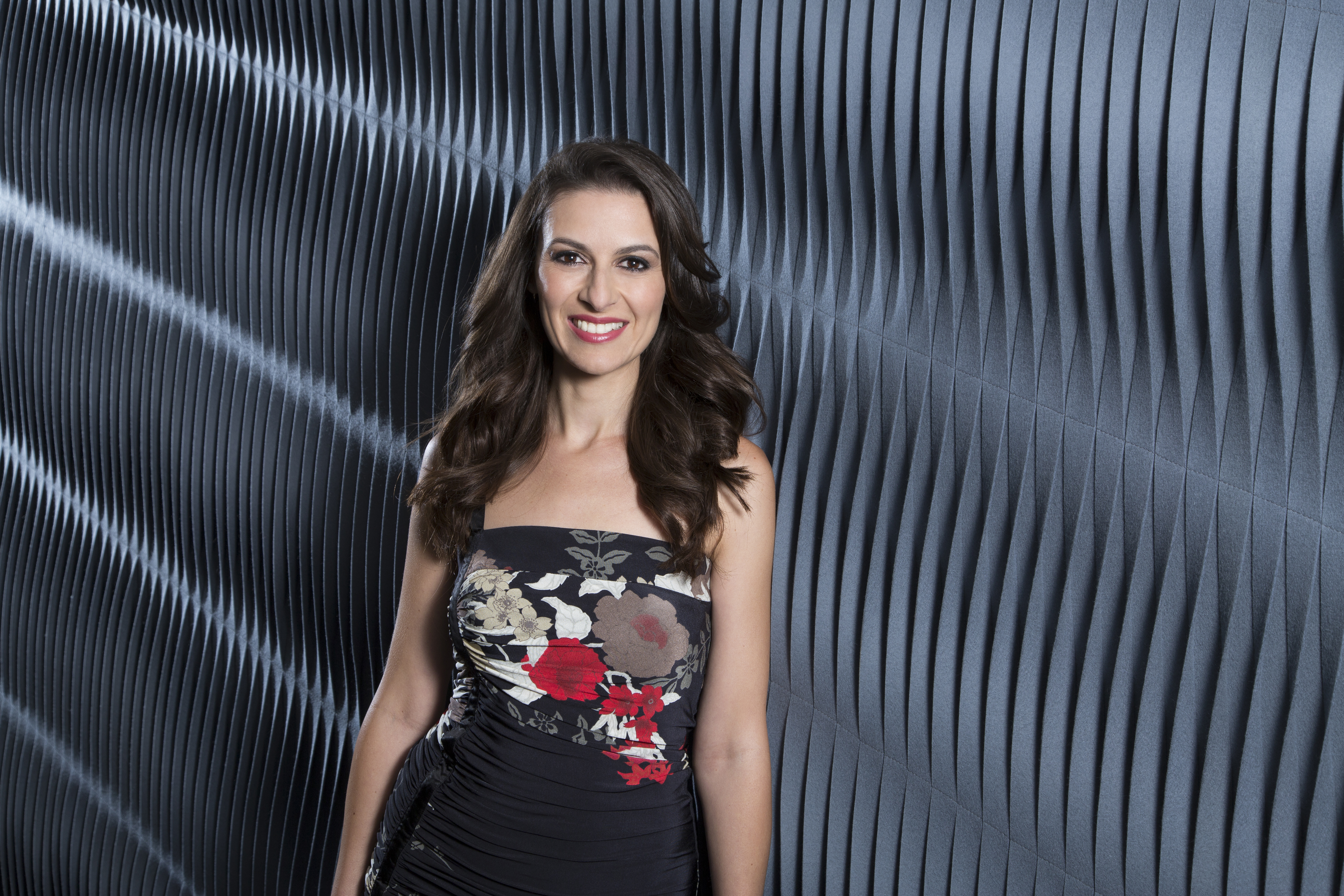
Photo: Paul Marc Mitchell
Beyond Beethoven, what other works are you thinking about right now?
A role I’d love to do soon is the Contessa in The Marriage Of Figaro. For me it feels like a natural next step. The interesting thing is that i’ve just done Susanna in Vienna, and that’s not a role I’ve sung a lot. The first time I sung the entire role was now — I’ve sung a lot of Paminas and Zerlinas, as well as and Servilia and Blonde, but somehow Susanna just happened now, and it’s a great role. You sing a lot, and really a lot in the middle voice. It’s a great character, but I think the Contessa has the better music.
It’s more soulful.
Definitely! It talks to my soul. I feel closer to her than Susanna in who I am. So that’s definitely a role I’d love to do. And I’d love to do Cleopatra in Giulio Cesare. I sung Liu in concert with Mehta but I’d love to do a production. Or Melisande, or Leila in The Pearl Fishers. It’s not done a lot, and I’ve not sung a lot in French, but I feel like my voice suits it, because you need this transparency. I also love religious music in French — Poulenc’s Stabat Mater, for instance — so I have those places I want to go.
Your current projects seem like the right assortment of contents to put in the luggage to take to that destination.
I hope so! I like to think about long-term planning, because I’ve done a lot and I’m in a position where I can choose what to do and what to concentrate on, which is a great place to be. And I’m still young and the voice is in a good place to try new things. The most important thing is the people around you: your managers, your PR people, your vocal coach, your web designer, your photographer. You have to make sure to surround yourself with the right advisors, and not let anyone push you or present you in a way that isn’t who you really are. A lot of people now are trying to imitate the career path of other singers. I think they need to remember that what feels natural and correct for one won’t work for someone else; each one of us is a different person and performer. It’s really important to stay true to yourself.





